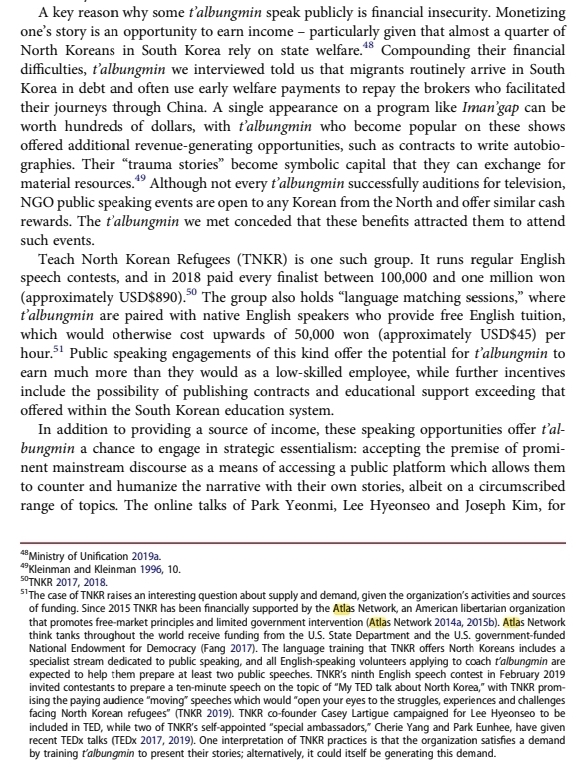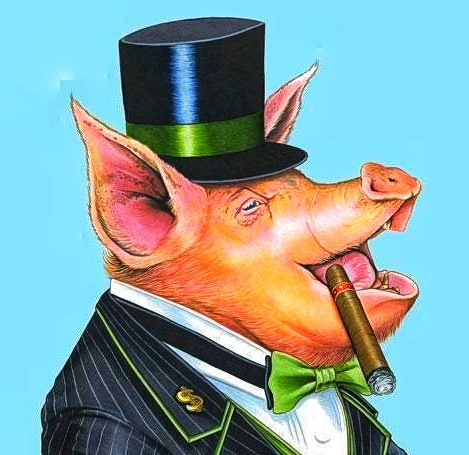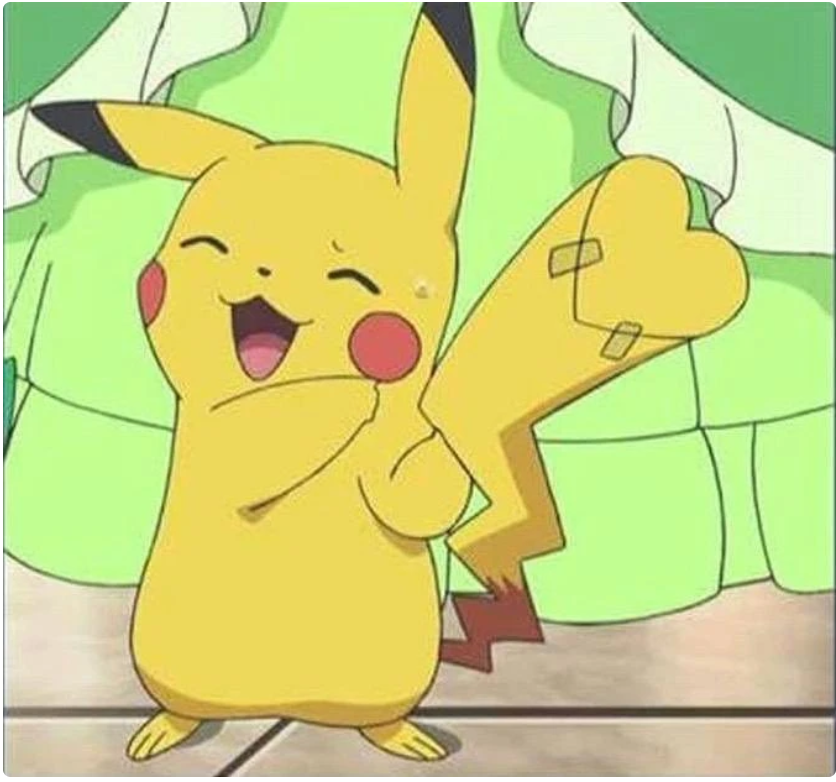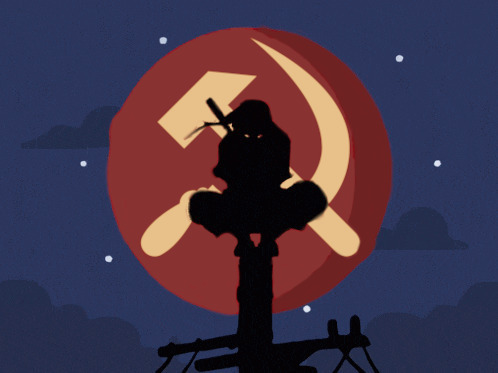To all full-grown hexbears, NO DUNKING IN MY THREAD…ONLY TEACH, criminal scum who violate my Soviet will be banned three days and called a doo doo head…you have been warned
Both my husband and I are children of expats from former Soviet countries. And while I think I’m fairly open to socialist ideas, I do get caught up on the fact that the people among our relatives who are most nostalgic for the Soviet Union are also VERY racist, homophobic, terrible to animals and just generally mean to everyone around them. And their food, in all its hyper-processed mystery meat and mayonnaise glory, kinda sucks.
Any tips for getting over that bias?
I think it really is a generational thing, especially with people who grew up during the liberalization era. Plus people wrongly try to make sense of the collapse of their lives, so they may fondly remember Communism, but associate their new shitty conditions with stuff like LGBTQ rights instead of everything else the west brought. This is why a cultural revolution was a necessary idea, even if not executed well. People didn’t retain the materialism of the ideology even if they are nostalgic for the world it created.
I always think about this conversation @[email protected] and @[email protected] about her family and how her grandmother so quickly became pro-LGBTQ, while her more liberal parents are not as quick to change. https://hexbear.net/comment/3310448
I think reading Blackshirts and Reds by Michael Parenti would be helpful. He doesn’t make excuses and acknowledges the racism in the USSR. I think laying bare the actual shortcomings of the project places it in reality instead of the cartoonish evil depicted by mainstream Western history. It allows for a clearer understanding of the good alongside the bad and shows where we can improve in the next iteration of a socialist project
We’re all human and need to see where we can do better, and despite the issues of past socialist experiments, it seems to many here that this form of government is the most likely way for humanity to do the most good for all
There’s a Chinese communist from the early days of the CPC - and I feel bad that I’ve forgotten his name - who I have read some of his thoughts on this. He said the first generation after the revolution will still have brains full of worms, even among the best and most upstanding comrades. This will get better over time, but you’re talking many generations. Because we are all products of our environment. We cannot escape the social conditions we grew up in. Being a communist doesn’t mean you are now some new person completely cleaved from any connection to the world around us and our personal histories. The Soviet Union did make attempts to fight sexism, racism, nationalism et al within their borders, but thinking you can just propagandize people into right thinking is idealism. The USSR had to start with the social conditions they inherited - and that society, which was part feudalist part capitalist - had a lot of sexism, racism, nationalism, etc (and of course cruelty to animals).
I’ll make a confession: I still sometimes have reactionary thoughts and ideals pop into my head. And it takes active, conscious thought to tell myself “what the fuck dude, cut that shit out”. If I was not actively engaged in checking myself on that, it is possible that the brainworms could come back. It’s something we are all susceptible to in some form, I think.
This is one of the reasons I think we need to repurpose Christian rituals, at least in Christian communities. A symbolic washing away of your old self, confession, the importance of good works informed by study and the faith in the coming rupture, communion and fellowship and sharing of bread across social divisions, etc. We need communist churches
Jonestown
How can I get better at understanding contradiction? Specifically identifying contradictions, I’m still struggling a bit with the dialectical part of dialectical materialism.
Contradiction is the inability of a complex system to internalize new data and new conditions
For example the labor vs employer conflict and capital expansion vs the natural world are the two biggest contradictions inherent to capitalism
Liberals maintain that the acquisition of new data can somehow offset the new conditions and resolve the contradiction, always, no more matter what, like magic
While materialists argue the system can’t internalize data that contradicts the interests and incentives that animate the system entire (because that would negate the point of the system), which is Capital Accumulation
Basically if any new data that offsets capital accumulation is introduced to a system that is fueled by capital accumulation, far from what the liberals claim the contradiction is not resolved, it’s in fact heightened
To understand and spot contradictions you have to understand the nature of the specific system at play and what primary mechanism animates it. For capitalism that is profitability, everything in the system revolves like planets around that dark bronze heart
So contradictions and the orientation of the system can be spotted when you see something that either services profitability or opposes/limits it
I don’t mean this as a dunk, but usually what has to get taught about leftist politics isn’t the specific claims of Marxism or what socialism is. Usually what western people have to be instructed with is current/former socialist countries are legitimate places and not cartoonish dictatorships. The nationalism brain worm runs far deeper than the capitalist one. And it’s that kind of sentiment that will entangle itself with their understanding of what western socialists advocate.
It’s pretty normal to accept anti-capitalist sentiment, even right wingers will use that kind of rhetoric, but it’s far less normal to praise the west’s enemies or to even view them as valid human beings. It’s why it’s so common for western leftists to first and foremost condemn the west’s enemies as doing socialism incorrectly.
That’s just what I experience most of the time when I get curious questions about socialism. I might get the odd question about how you motivate people without money, but the bulk of questions are about stuff like what haircuts are illegal in the DPRK.
Usually what western people have to be instructed with is current/former socialist countries are legitimate places and not cartoonish dictatorships.
To reinforce your point here, I cannot stress enough how important a step learning actual details about the USSR and China was for me. Because as you say, people don’t think of these as real places where countless real people had mundane, normal lives, they just imagine literal cartoon caricatures they passively absorbed from pop culture. Like one that stands out to me is reading a thorough description of the Soviet court system, where even though it took pains to stress how dysfunctional this feature or that feature was all I could think was “I’ve had family go through the courts in the US, I’ve seen firsthand what a completely mad and not at all functional system the US has, and by comparison what the Soviets were doing over half a century ago was meaningfully less dysfunctional than what we have now.”
And for China, ironically it was something from anti-CPC ultras (Sorghum and Steel) that helped me realize what China had even been doing at all, because even if they stressed this systemic failure or that one they still went into detail about what the policies in question were, what the material situation on the ground was, and why those decisions were being made, leading to a clear picture of China struggling against an impossible material situation and eventually succeeding. Like every western history is just “grr arrg mean devious celestials tricked the peasants and then Mao ate all the sparrows cause they’re dumb, grrr” but in the actual context even the catastrophe of the Great Leap Forwards starts to make sense in terms of the model emerging from rural communes that had implemented it successfully (or were claiming to have done so, at least) and the model of highly decentralized rural industry that’s far from the coast being extremely appealing given how vulnerable centralized coastal industry would be in the event of a war with the US; the Great Leap Forward didn’t work in practice, obviously, but there were clear reasons and pressures behind it instead of just the “lol gommunism dumb no food where iphone” bullshit that makes up the sum total of what liberals believe.
i had a similar experience reading some anti-communist (i think) book in college, i forget the title but the primary antagonist guy was some bald guy with a scar on his head that would turn colors or writhe whenever he got mad, like the author was making fun of the scar, and this character basically resented the rural peasants for picking their noses all the time and just being generally ignorant uneducated people. like the whole point of the book was about how stupid and pointless it was to try to turn these idiot peasants into Modern Socialist Revolutionaries, but like all the reasoning and actions the ‘antagonists’ took made perfect sense to me the whole time. i forget most of the details since it was so long ago so its possible i just assumed the book was meant to be anti-communist and it was actually making some 5-d irony chess point that i would agree with if i noticed it. idk.
What’s the book?
i wish i knew, i can’t remember the title for the life of me
Yeah I agree with this totally, it’s why I try to hammer home that people focus on breaking down nationalism first and foremost, it is the primary issue.
imperialism is the current greatest threat to socialism worldwide, so much of a threat it even trickles down as brainrot in the minds of western people
What’s it truly like to live in communist north korea right now? I know that most of the buzz around how it’s a failed state and they’re starving the people are mostly propaganda, but it’s so hard to tell fact from fiction especially since there’s propaganda within the state as well.
I’m by no means an expert but some factors to consider are that there’s a very extensive economic sanctions regime in place against the DPRK.
What that looks like on the ground is that there’s very little oil because it’s hard to import, meaning that there are few cars and a heavy reliance upon mass transit and electricity instead (e.g. trolleybuses).
It also means that they don’t have as much access to things like cutting edge medical technology.
For farming, as manufacturing modern agrochemicals is often very energy intensive and reliant upon oil (do we even use the term petrochemicals? Lol. It feels like all of our chemicals are derived from oil these days…), they tend to be much more low-input chemical-wise and this affects yield as well as the environment (e.g. less chemical runoff in the waterways, all things being equal.)
There’s the focus on militarisation of the DPRK in the western media and this is a response to the Korean war and the very obvious attempts to destabilise and destroy their political system. Their recent advances in nuclear arms and ICBM technology has given them a degree of breathing room as it’s a pretty well established fact that this creates military deterrence that was otherwise being maintained through a very strong focus on a conventional military with a large financial investment in that. These days it’s not as high a priority to have such a strong army, for example, and they don’t need as much artillery aimed at Seoul to feel some degree of security knowing that nuclear missiles are going to fulfil the same purpose. (Am I cribbing my notes from Stephen Gowans here? You bet I am!) I would expect to see the DPRK gradually scaling down their investment in conventional military and reorienting their economic priorities towards infrastructure and other civilian purposes but I’d expect to see just as much military pageantry because they won’t want to expose their flank to the rest of the world unnecessarily. This means we should see better outcomes for the average citizen of the DPRK.
The west is preoccupied with the notion of Potemkin village narratives in the media. Everyone and their dog will point out how some building with no lights on is proof that an entire residential block is just for show or how the passengers on trains in the DPRK all appear to be actors or whatever. This is largely nonsense and a product of westerner tourists coming down with diagnosable cases of Main Character Syndrome and I wouldn’t give much credence to these stories. I mean, I’ve been hearing that China is on the cusp of collapsing for about 25 years now and that it’s going to happen within this year for real this time so I’m a bit reticent towards sensationalism in the media. When the media focus on the DPRK, one of the biggest names is Yeonmi Park who talks absolute rubbish. Plenty of what she says is either absurd, contrary to basic science, or easily fact-checked and disproven. Often her stories are not even internally-consistent.
She claimed that she was so propagandised that she didn’t recognise that Kim Jong-Un was fat. Like, she couldn’t conceptually grasp that he was fat. Not that she wasn’t allowed to talk about it or that there was propaganda explaining why but that she would look at a picture of him and she would be unable to see it.
I mean, come on…
Obviously there’s the famous Joe Rogan interview where she said that there was one train that ran in the DPRK (completely false), that it would only come once a month (again, completely false), and that people would often have to get off the train and push it (I’m sorry, what??). This is directly after saying that people would hang around the train station starving to death and there would be children who were so starved that all their organs fell out (???) and that rats would eat the corpses of victims of starvation and that people starving at the train station would hunt the rats for food.
If that were true we would have satellite images of it. If that were true people wouldn’t stand around starving to death at a train station, they’d be hunting and foraging elsewhere. If everyone was starving so badly then nobody would have the strength to walk, let alone to push a train (which is an absurd amount of weight to try and push regardless of how well nourished you and your fellow passengers are).
I have to admit that I don’t follow Yeonmi Park’s appearances in the media closely but if she’s the leading voice in the western media for what things are like in the DPRK and, at least to my knowledge, no journalist has confronted her about her inconsistencies, her outright fabrications, and her ridiculous claims let alone challenged her on any of them then I’d say that it’s a safe bet that the standard for journalism on the DPRK is abysmally low and it should be regarded with deep skepticism.
There are other things like how there’s an effective blockade on people from the DPRK leaving to go to other countries. This is something which was passed by the UN Security Council as a part of sanctions on the country, although the received wisdom is usually that it’s the DPRK government who imposes this on its citizens.
Same goes for starvation or lack of food. If you look at Security Council resolutions (not that I expect people to do this but…) you’ll find the US pushing for outrageous sanctions on things like oil and food imports and you’ll have China threatening to veto the resolution because this would cause destabilisation of the DPRK due to the measures being so extremely punitive, meaning that often before the final resolution passes it gets watered down enough that the average citizen of the DPRK isn’t facing abject starvation conditions but only because China is curtailing the US’ designs. I’d need to dig back into old resolutions to get a clear picture of this but there was the Deng Xiaoping era onwards where China pivoted and began playing ball with the west, in a dramatic departure from the Mao era, and they were not nearly as strong militarily, politically, or economically so I would venture a guess that China being firmer in its negotiations at the Security Council with regards to stuff like the DPRK is a relatively recent shift. But basically any country which is cut off from the rest of the world’s agriculture is only one environmental disaster away from starvation. Modern agricultural practices ameliorate this to a certain extent but if your country is cut off from them as well then you’re in a precarious position.
But yeah, it’s extremely hard to distinguish fact from fiction when it comes to the DPRK and you’re not alone in feeling that way. My default position for anything about the DPRK is false until proven true and to be wary of the interpretation of the facts, for example what I mentioned above where it’s a function of the UN Security Council resolution that prevents DPRK citizens from travelling abroad rather than some cynical plot by the DPRK government to control the movement of its citizens.
Am I cribbing my notes from Stephen Gowans here? You bet I am!
Lol I thought I saw this somewhere.
There are other things like how there’s an effective blockade on people from the DPRK leaving to go to other countries. This is something which was passed by the UN Security Council as a part of sanctions
I’m curious to read more if you have any links.
Yeah, NK’s state media has always had a very off and somewhat idealist view of the DPRK. Most information you find on the nation doesn’t pass the sniff test. They also seem to be the oddball of the socialist countries.
This is one that made me question the western narrative on NK. An article about a stoner getting some North Korean weed and smoking in a restaurant like it was no big deal.. Very good read
The demonization of marijuana is such a bizarre thing. The US wanted to criminalize black culture so they deemed weed in the same category as meth or heroin, and countries in the imperial core and imperial periphery followed suit. But in places untouched by US influence weed is just … a part of their lives and culture. Just another plant that made you feel funny, like tea. And it’s refreshing to see places where weed isn’t just a drug that was decriminalized and made legal again, but actually had its legality preserved throughout and had no taboo associations stemming from it.
Anyway, fuck US culture for demonizing weed and shrooms. The US single-handedly destroyed a source of innovation for mental health research globally for having such a draconian stance on them and sheeple countries follow suit.
As someone with schizophrenia, I can say that the west demonizing psychedelics (shrooms and DMT specifically) has probably set back the treatment of schizophrenia really hardcore. There is a very heavy DMT presence in schizophrenia. I don’t know what role is plays exactly, but it is clear as day that DMT is partially responsible for the visuals. And people around me say I pretty much always act like I’m on shrooms. Psychedelic trials are essential to ever getting good schizophrenia treatment.
Also, the coca leaf was a lot like this before the west came in. Chewing a coca leaf doesn’t get you super high, it’s like a slightly harder cup of coffee, not even particularly addictive when treated right. America literally ruined every common plant medicine. Even starting to fight kratom even though kratom is essential for alleviating the fentanyl crisis in the nation. The US wants criminals, not functioning people
jaka parker has videos of this on youtube https://vid.puffyan.us/watch?v=e6STm0seel8
indonesian diplomat, has no real commentary, no handlers. just shows daily life in the country. its not a rich place, it is severely lacking in industry due to western sanctions, but there are some interesting things going on, particularly in regards to housing and food distribution. a lot of places in asia look a lot like north korea, there is new development that is very good, and there is dilapidated rural areas. its important to understand that this region used to be worse off than africa. china has many similar issues, but have been able to rapidly advance due to deng’s reforms.
Ehh compared to Cuba North Korea has excellent industry. Honestly DPRK heavy industry looks pretty decently developed.
their methods of transportation definitely need some work, but theres a lot of stuff going on. ox carts next to trains and industrial equipment building skyscrapers.
Once again compared to Cuba it’s leaps and bounds ahead. They have electrified freight and passenger rail with daily trains to Beijing, several tram and trolleybus systems and a suburban rail network in Hamhung (not sure how that weird little railway works tbh).
I don’t claim to be an authority, but I have spent the last couple years trying to learn about the DPRK as much as I can from more independent sources (like from people from China who go there as tourists).
From a material perspective… very broadly it seems like it’s better to live in the DPRK than to be poor in the United States, but someone in the US who isn’t poor is probably better off than most DPRK citizens. That of course should not be a surprise, given how heavily the DPRK is sanctioned and how restricted their trade is. Interestingly from the time shortly after the Korean War (after the DPRK was able to recover from having every bit of its industrial capacity destroyed and ~20% of its people killed) up through the 80s, the DPRK was seen as the wealthier of the two countries on the Korean Peninsula.
Honestly, the only way to deny that the people of the DPRK are doing ok materially is to use the line about how whenever you see videos of people having fun a water park or whatever, they’re all just actors. For that, idk I think any application of critical thinking would tell you how ridiculous that is.
That said, there’s some truth to the famine thing, but that’s more an artifact of recent history. There really were famine conditions and suffering in the 90s. But that was more a function of some unique weather/climatic conditions plus the collapse of the USSR. The environmental and terrain conditions in the DPRK are not ideal for farming (cold and mountainous), so there’s a lot less margin for when things go bad. The famines could have been alleviated if the DPRK was allowed to have normal relations with other countries, but at the time the US and their allies used that suffering to try and put the screws to the DPRK instead.
I don’t know enough about the political situation to be able to speak to it with confidence.
What a cruel thing the US did to use the suffering of the north koreans as ammunition against north koreans
Wait till you read about what the US did to the people of Nicaragua by supporting the Contras (who were for all practical purposes a part of the US military), if we’re talking more recent US atrocities…
Keep in mind that the DPRK had 20% of its people killed off in a matter of 3 years and much of its land destroyed.
So, while there have been a famine in recent memory (during the 1990s), this has been a result of the economic embargo and sanctions on the country.
I’m trying to be as honest as I can with you here.
Yeah that’s wild, i just listened to the Blowback podcast and during the korean war the US military ran out of north korean targets to bomb.
People keep referencing that north korea is a hermit kingdom and that it actively does not want to participate in the global economy and … that makes sense? I too would be paranoid and disinclined to negotiate with the outside world after having the outside world literally burn me into rubble.
Keep in mind that North Korea, or the DPRK, can’t really trade except for with countries like China and the Russian Federation (and even then illegally while those two countries look the other way).
It’s literally in an embargo that’s been going on for decades now.
That too. Although, I wonder what the terms of the embargos are, and what north korea has to do on their side to appease the west and allow trade.
Oh why is this country so corrupt and backwards! Let’s put more sanctions in to restrict its trade and starve its citizens.
Western logic 😵💫
what north korea has to do on their side to appease the west and allow trade
Cuba tried to ask for such terms and was told no terms would be offered.
Per Blowback, Che offered to the US, in exchange for lifting the blockade:
-
No exporting Revolution
-
No military alliance with the USSR
-
Cuba wouldn’t / couldn’t directly pay back the US for appropriated property, but were willing to reimburse the US over time through terms of trade
Really, the only non-negotiable was that Cuba was a communist country, and would have communist governance and a communist economy. JFK thought it was a sign of weakness on Cuba’s part and turned them down.
-
Yeah, there are virtually no terms (from what I’ve read), as the country’s leadership is seen as undemocratic and dictatorial and, therefore, the United States and its allies dictate the terms (and DPRK has to follow them) while North Korea doesn’t get a say. It is called a rogue state partly for that reason (as opposed to a country like Saudi Arabia, which has often been a staunch partner of the United States).
But we know that it has a functioning democracy at various levels; certainly no worse than most Western democracies.
I’ve known people who’ve been there. I’ve known an Indonesian guy for instance who used to go on vacations to the DPRK to go skiing. Apparently it’s a fairly normal vacation destination for Indonesians because they can get into the country easily.
From what’s described to me, day to day life is pretty comparable to any other poor country in Asia. Life out in the countryside is probably the hardest. It seems like the worst aspects of living in the DPRK all relate to poverty rather than the cartoonish goofy dictatorship that westerners claim the country is like. They don’t have great internet access, but from what I’m told nearly every person in the DPRK buys USB drives full of pirated stuff anyway.
Other than their media, the DPRK is pretty normal, and in fact doing quite well considering their decades of sanctions and international aggression. They haven’t had widespread food insecurity in a while. Their healthcare system seems stable. They had energy instability for a while in the 90s they seem to have managed.
Oh, also regarding defectors. Most that you hear about are monetizing their story through USA backed Libertarian think tanks. Atlas Network being the big one. Freedom Factory is another if I remember correctly.

i swear. Propaganda, propaganda everywhere. We talk about America having “free speech” but it feels like the only ones able to speak and have their voices heard are the ones that are able to buy their way into the ears of millions through social media and mainstream media.
Manufacturing Consent machine goes

Noam Chomsky - The 5 Filters of the Mass Media Machine - this is a quick little 5 minute primer on the topic, if you’re not familiar.
I see you’ve listened to Blowback, have you had the opportunity to watch Yellow Parenti yet?
Hggnnnhnhm
But what if I’m an introvert? I don’t wanna be forced to socialize
I am pretty solidly a communist but still pretty hung up on general leftist aversion to freedom of expression.
I’ve read a little bit about the Paradox of Intolerance and it does make sense (as much as a paradox can I guess), but it just bugs me that at the end of the day, whoever is in power gets to define “intolerance” and their definition might not match the majority’s. And the majority might not be right either…
Some people would consider me intolerant for being against circumcision and piercing of infants’ ears, because those are deeply-held cultural traditions for some people.
Reactionary and hate speech makes me fuckin sick. Yet I’m terrified that attempts to officially ban it just fuel persecution fetishes in people who practice it, and cause them to go further down their rabbit holes and drag more uncertain people with them.
I’m at least not crazy for worrying, right?
but it just bugs me that at the end of the day, whoever is in power gets to define “intolerance” and their definition might not match the majority’s. And the majority might not be right either…
This is to me one of the most primal liberal problems with thinking about politics. No, communists do not support some benevolent autocrat delineating acceptable speech, it must be democratically decided with a mind to Marxist analysis. “But what if people vote wrong?” Campaign against it! Educate them! “But what if people vote so overwhelmingly wrong that such a campaign is hopeless?” Then you are talking about a state that is so overwhelmingly compromised that it doesn’t fucking matter if your hypothetical Republicanist alternative tries to reign them in, because in liberal society there is already a massive extent to which popular consensus decides if you live in squalor or not based on what you say. That’s what “a reputation” is in liberal society.
The only thing to do is to educate people on what their own interests are. If there is some hypothetical world where people are just determined to vote themselves into hell, then that represents a failed project and a state that must be overthrown.
Some people would consider me intolerant for being against circumcision and piercing of infants’ ears, because those are deeply-held cultural traditions for some people.
There is a difference between speaking against something and banning it. This is ultimately just a question about the nature of reactionary religious practices, not “free speech” itself.
Reactionary and hate speech makes me fuckin sick. Yet I’m terrified that attempts to officially ban it just fuel persecution fetishes in people who practice it, and cause them to go further down their rabbit holes and drag more uncertain people with them.
While not as fundamental, this is another common trope among liberals, though I am glad that even radlibs have started to understand that deplatforming is good and works. Yes, the new circumstances fascists are put in give them new tools with which to recruit, but that’s the dialectical nature of reality. What matters is not that they have new tools but that those new tools are predicated on them being deprived of old tools that are much, much more powerful, and being able to call yourself a fascist in open society is much more powerful to recruit new fascists than some precious little song and dance about “look at who you aren’t allowed to criticize”.
I would like to further point out that your likely frames of reference – either America or states just to its left – overwhelmingly don’t prosecute what you and I would call hate speech, it is the social consensus around some of that hate speech being bad that pushes it to the fringes. It is the banning of it – which is something that should follow from that social consensus in a democratic government – that would for most intents and purposes stamp it out.
There’s also the matter of social programs and such for the alienated and dispossessed people who it might pick up or who have even already been caught up in it. The law does not need to be punitive, and many fascists are ultimately also a type of victim who the state can help out of their fascism if the state actually wanted to do so.
I have two cows. What’s gonna happen to them?
Subsistence farming is very different from owning means of production and exploiting workers. Unless your two cows are a metaphor for owning land and cattle that are worked by peasants while you keep the surplus value literally nothing happens.
actual subsistence farming is pretty comfy too.
People have a bad image of subsistence farming because the only people who are subsistence farmers now are people in the 3rd world, where resources are directed towards cities and people in rural areas often lack clean drinking water (which is dirty due to the high population of said land)
Back in neolithic/bronze age times, the Indus civilization had an average height of 5’8" which meant they were eatin’ good. (That’s tall for the time). It’s also known that the Indus sites lacked a lot of the social stratification found in Western Mideastern sites. The average subsistence farmer today is probably like 5’5" due to malnourishment and dirty water.
It’s similar to how hunter-gatherers today are super malnourished people in shitty desert climates, even though there were hunter gatherers in lush green fields thousands of years ago
Subsistence farming with added modern luxuries under communism would be incredibly comfy and not at all oppressive
Ehhhh it depends what you actually mean by subsistence farming. Growing a good portion of your own food on a home scale? Sure, it can be simple and fun. Growing all of your calories and micro-/macro-nutrients for the year? Takes very intensive planning and management, and more physical labor than many are used to (even with technology). Of course it can still be a very rewarding lifestyle, but it’s by no means easy or idyllic.
If you want to see what it takes to grow your own diet for a year, I highly recommend the book How to Grow Your Own Vegetables and the associated exercises from Grow Biointensive. It’s an eye-opener, for sure.
Where can I learn about China’s recent economic history? I’m particularly interested in Deng Xiaoping’s reforms and how they managed to resist being exploited like Africa is being right now despite opening up its markets.
This explains everything, I would argue. Just go to the two videos explaining SwCC and Deng Xiaoping.
https://www.youtube.com/playlist?list=PLsCaI-gsA29xVYzFI-kYWLcx2QhowNBCL
omg the bay area archive , i thought he was wiped ! hell yeah . Thank you .
I was his advisor. Well, one of them.
I have a question that I hope some of you will entertain. This is not meant as a criticism, but rather a sincere curiosity on my part. While there are numerous examples of how things can or could function in socialist societies, I am curious about anarchist societies. There appear to be various instances where there is no common answer, even within anarchist circles (as far as I know). Please note that I am not an anarchist (yet), so I would love to be enlightened.
How does healthcare look under anarchism, especially on an industrial large scale? How do you decide what gets build like lets say you need more energy how do you take care of that.I understand that this might seem like an abstract question, but when looking at socialist societies, there are examples of how things ‘could’ be done. However, I have no idea how things like that might look in an anarchist commune of California, for example.
Are there any reading materials on concrete ways how anarchist societies could function in modern times? I am aware that we have anarchist comrades, and I would love to learn more about it. Basically I think Anarchism sounds really cool but I have a hard time wrapping my head about how a functioning anarchist society would/could look and operate. Like are there books about bureaucracy under Anarchism ?
As for bureaucracy under anarchism, that’s a contentious topic.
For anarcho-communists, it’s probably going to be very similar to the examples that a communist will give you.
For syndicalists, the level of organisation or coordination would occur between “workplaces” (I can’t use the term factory here for obvious reasons and “unions” can blur some lines that are less than ideal because a syndicalist understanding of their ideal system is not a “unions sitting on top of the political economy/unions sitting at the side” sort of deal like we see today.) There should be larger all-sector unions which represent each industry in a syndicalist society that would coordinate and collaborate with other all-sector unions, so let’s say that there’s new medical technology which is being implemented in hospitals but it places significant demand on electricity or telecommunications - the all-sector healthcare union would need to communicate this increased demand with the all-sector energy union or all-sector telecommunications union to coordinate building more infrastructure or increasing energy production etc.
For anarcho-primitivists - it’s basically going to be tribal. As for healthcare, guess I’ll die 🤷
This gets contentious because it’s not really considered to be orthodox anarchism but some of the more comprehensive theory on anarchist/anarchist-adjacent bureaucracy is found in Murray Bookchin’s Libertarian Municipalism and, by extension, Abdullah Ocalan’s Democratic Confederalism (which is what the YPJ and PKK are striving to achieve in Rojava in Syria currently.)
I think the reason why you can ask 10 anarchists what bureaucracy will look like under anarchism and you’ll get 11 answers is because in terms of ideology, anarchism is very heterogeneous.
Okay, I think I understand that anarchism is very heterogeneous. It does throw me off a bit, though. For example, I heard Anarchist A say billionaires should be put into re-education camps, while Anarchist B says we don’t do that; that’s not anarchism. How do anarchists find common ground on issues when there is such a diversity of thought ? Would they split into different communes that would basically operate under different laws and rules ? Extreme example an Anprim and a Syndicalist dont share much common ground or do they ?
Anprims share little common ground with other anarchists, especially in regards to their conclusions or their prescriptions for society (if that makes sense). Like, they might agree with say 75-90% of what another anarchist holds as their political beliefs but what the anprim believes needs to happen as a solution will be wildly different to the other person’s program.
There’s virtually no common ground between what a syndicalist society would look like and what an anprim society would look like. The commonalities would mostly be negative, in the sense that there would be the absence of capitalism etc., than positive, in the sense of what would be present, in their respective societies.
How do anarchists find common ground on issues where there is such diversity of thought?
This is probably worse than a non-answer but how those conflicts are negotiated is itself another arena for diversity of thought.
For someone who is a platformist, for example, they might expect to see rigorous debate within anarchist society about what to do with the billionaires but that once a majority has been reached on what needs to happen that the dissenting factions need to fall in line.
A different type of anarchist might find the plurality of communes as a viable option.
It gets super complex and often there’s no clear terms for how diversity of thought should be meditated except when it comes to different anarchist tendencies that have a very explicit political structure like with platformism or libertarian municipalism.
Thank you for taking the time to respond to me. I feel like I’m pretty much onboard with anarchism. One thing that does bother me, though, is anarchist stances regarding AES and generally anarchistic geopolitics. I also have a feeling that some of them don’t dislike the West enough. I’m aware that many of the anarchists on Hexbear have great politics. I’m just under the impression that outside of there, it’s not that great (this is true for socialists as well, though). I guess I’m also not that vehemently opposed to states as most anarchists are; I just think anarchist organization is neat.
Honestly, and this is just speculation and my own anecdotal experiences so don’t overstate the importance of what I’m about to say here, but I have found that there’s a very strong emphasis on the anti- position or the negative in anarchist circles and this is reflected in how a lot of anarchists focus their criticisms and allow them to be influenced by the prevailing narrative in the media or society.
If you’re anti-state it’s easy to be anti-USSR, for obvious reasons, but if you’re not carefully managing your biases and doing your due diligence then that leaves you very vulnerable to absorbing all of the criticisms of the USSR out there, whether they are accurate or not and whether they are situated within a historical and political context or not.
This is how you end up with MLs accusing anarchists of consuming state-department stenography.
It’s easier to go along with the common narrative that the communists nearly caused a nuclear war over the Cuban missile crisis than it is to dig into sources to uncover that the US was actually the primary antagonist throughout all the events leading up to it and during the crisis, for example.
Likewise, it’s easy to regress into a default position if you lean too heavily on the negation. If I said “the US committed a war crime by enacting a blockade on Cuba” it’s easy to dismiss this because you reject the concept of borders or states and to use that position to avoid engaging in the matter any further and to retreat to the default position by refusing to examine your own preconceptions.
Obviously this isn’t the case for all anarchists and it’s just a trend that I’ve observed etc. etc.
Elsewhere in my life I’ve been known to tease anarchists over this by occasionally obstructing discussions by sort of playing a veto and accusing every side of imposing an unjust hierarchy and doing the whole “both sides are wrong and neither get my support or sympathy” routine. This is done in a tongue-in-cheek way and I play it for outrage (so an example might be about Israel and Palestine and me feigning a principled objection to both sides to stir up mischief with an anarchist) but the kernel of truth in the joke is me gently saying “watch out for this urge and be careful of what it can be used in service of…”
it’s easy to dismiss this because you reject the concept of borders or states and to use that position to avoid engaging in the matter any further and to retreat to the default position by refusing to examine your own preconceptions.
Oh god, this is one of things that turned me away from being an anarchist. The lack of an intellectual rigor and relying on these thought terminating cliches to avoid everything problematic, to avoid everything else on the Left that you didn’t necessarily agree with drove me insane.
Why do Hexbear socialists look at everything as all or nothing? It’s like any movement towards the left that isn’t an actual revolution is unacceptable. Personally I want to have more rights day to day even if it can’t go all the way.
deleted by creator
There is no democracy. If there was, we would agitate for people to vote.
Multivariate analysis indicates that economic elites and organized groups representing business interests have substantial independent impacts on U.S. government policy, while average citizens and mass-based interest groups have little or no independent influence.
[…]
In the United States, our findings indicate, the majority does not rule — at least not in the causal sense of actually determining policy outcomes. When a majority of citizens disagrees with economic elites and/or with organized interests, they generally lose. Moreover, because of the strong status quo bias built into the U.S. political system, even when fairly large majorities of Americans favor policy change, they generally do not get it.
Even red states seem to majority want weed legalized yet it still doesn’t happen. Somebody else’s interests are always blocking the people’s for these issues
How does a socialist system regulate the distribution of goods that cant be distributed, like lakefront housing. There’s only so much room for it and more people want it than could have it
Someone else says lottery, but realistically it is probably going to be money. Socialist systems (transitory as they are) generally still use money to some extent, and people that have specialised necessary skills often do get paid more (e.g. in the USSR, professors and engineers got paid more than janitors and politicians, Blackshirts and Reds somewhere). They can use this extra money to buy beachside property or exotic imported goods or services. What they can’t do with it is appropriate ownership of productive tools from the people actually using those tools (e.g. factories, phone banks etc).
I think beachside property is a good case study because it is desirable but will always be at least somewhat limited, especially as our view of the socialism we want becomes more green. People that hypothetically work near beaches would also have some priority (dockworkers, fishermen etc) depending on the region.
Obviously, there are socialist societies (real and imagined) that do away with money at the outset, but I think overall this answer has wound up being the best.
In a socialist system? Money. People with more demanding or specialized jobs would have more purchasing power. That’s it. That’s how it currently works in most socialist countries. People with more money purchase nicer housing.
In a completely moneyless society without any notion of property ownership? A completely post-revolutionary society with altered concepts of commodities? Who knows, those people in the future would have a completely different conception for what the meaning of life is. I certainly have no idea how they’d distribute stuff. People by then might not care about living in lakefront housing, or people might have a different concept of housing entirely. People might rotate out when they stay at a lakehouse. There’s no pre-designed system for this because the people in this hypothetical scenario would have different material conditions and desires than we do now. Ask an aristocrat in the year 1034 about how people in 2024 would acquire and use desirable farmland. That’s how far off our perspective is here.
My only prediction is that people in the future simply wouldn’t care as much. I’d hope a communist future would have much more chill people overall who might view the entire world as their home.

























